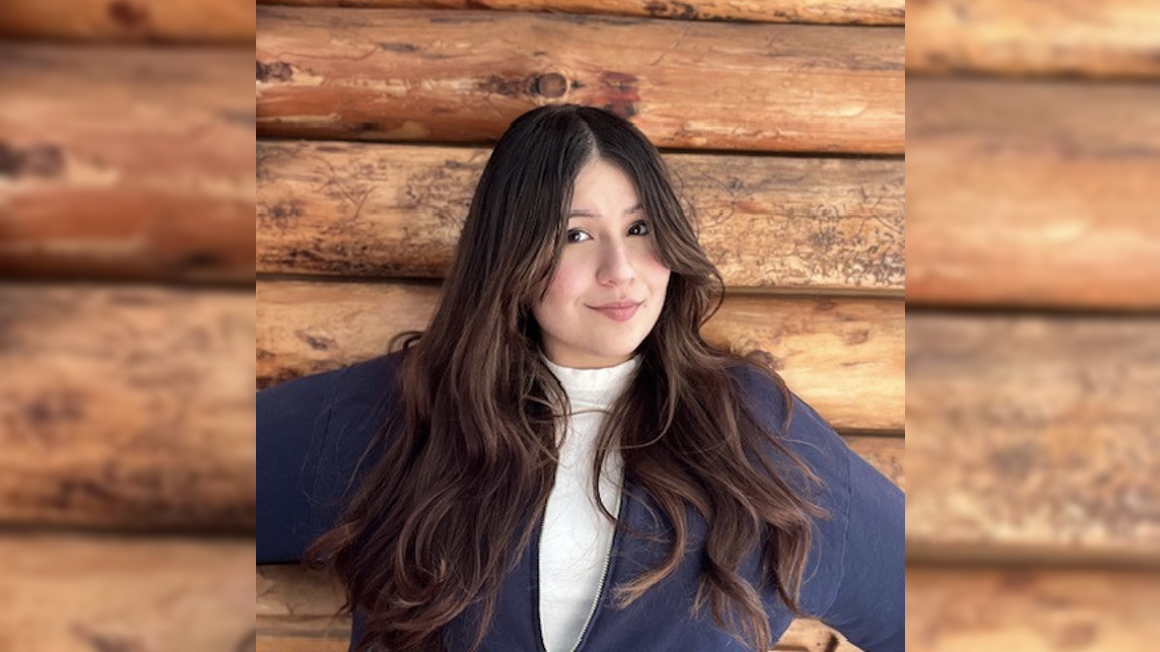An opportunity to assist in neutrino particle research with Dr. Blair Jamieson as part of The University of Winnipeg’s Pathway to Graduate Studies (P2GS) program helped cement for Flora Easter her passion for science.
“When you study science, it’s just like you’re studying, studying, studying,” Easter said, “whereas this was actually applying what you learned again and again. I think that really solidified what I thought I was going to do in the future. The program is meant to solidify and keep Indigenous students in the stream of science they’re in. In that way, it changed my path because I was more focused on science.”
Easter joined P2GS, which received $36,482 in funding from the Natural Sciences and Engineering Research Council of Canada (NSERC) PromoScience program, ahead of her first year at UWinnipeg and spent her time with Jamieson assisting in the design of an underground water Cherenkov detector that will help detect neutrino particles, otherwise known as ghost particles. Though Jamieson’s research is in the field of physics, which was at times intimidating for Easter, she said the opportunity to gain useful insight into the day-to-day work that goes into a larger project was nonetheless valuable.
“Regardless of what science you’re researching, the process is somewhat similar: you team up with a group of researchers and work on it all together,” Easter said. “The unity and teamwork was all there. Just because I wasn’t studying biology and because I was branching out, I don’t think I lost anything in terms of practicing for what I may encounter in the future.”
Added Jamieson: “That is part of the University experience, to be exposed to all kinds of different ways of thinking and to get an experience that they might not have thought of doing coming into university, even if they don’t pursue that field in the end.”
In addition to working with Jamieson, Easter, who has her sights set on a Bachelor of Science in Applied Biology, participated in the Randy Kobes Undergraduate Poster Symposium. She received third place in the Department of Physics for her presentation on the design of the water pool for the calibration of optical detectors for neutrino physics. Being able to take part in the competition and presenting to familiar faces gave her newfound confidence in her abilities.
Beyond assisting with research and taking part in the poster symposium, having the opportunity to get acclimated to the university environment prior to her first full semester at UWinnipeg helped Easter feel settled, which was a boon to her studies. Easter said being able to get past the initial fears and insecurities associated with taking the next step in her academic journey was one of the greatest benefits of her experience in the P2GS program.
As a Cree student, and a student who watched her fellow Indigenous classmates enter fields other than the sciences as she grew nearer to high school graduation, Easter sees incredible value in what the P2GS program offers.
“I really think that focusing on minority groups that need that extra push and may not be able to experience or put as much time and effort into these programs that they wish to be included in is really important,” Easter said. “We should target Indigenous people and encourage them in this field, because heaven knows we need more people like that here.”
About P2GS
P2GS is an experiential learning program designed for Indigenous Students at UWinnipeg to engage in learning science and science-based research. Every year, a group of dedicated faculty come together to work with students on a variety of research projects in psychology, biology, chemistry, geography, kinesiology and applied health, physics, and more.
The program prepares participants for senior undergraduate and graduate studies science courses and research while connecting with students of similar backgrounds and interests to form a network that includes graduate students and faculty. Throughout the four-week program, students engage in science education in the morning and paid research in the afternoon under the supervision of a UWinnipeg faculty member.
This year eight students are participating in the program from May 2 to May 27. Three of our four instructors are former scholars in the program and the fourth instructor has been an instructor in the program since it began in 2019.

